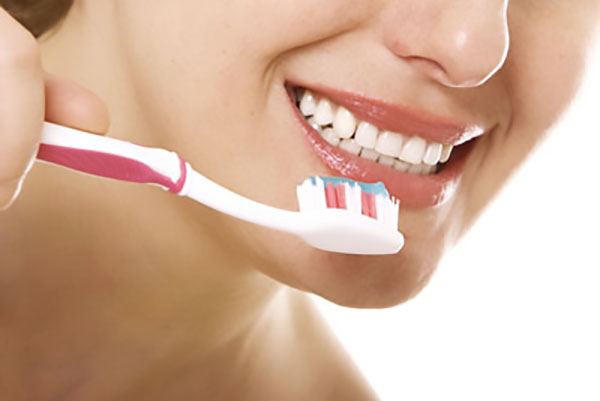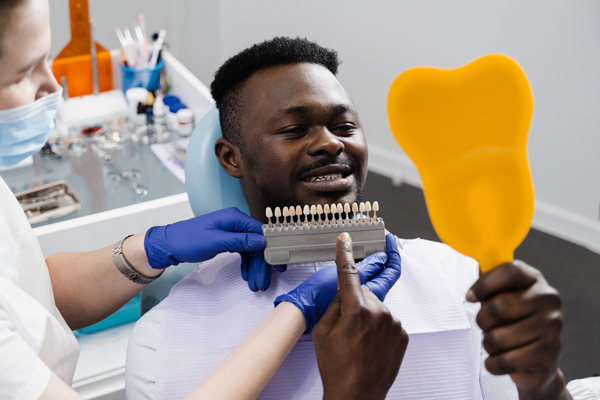Are Your Teeth Safe from the Destruction of Periodontal Disease?

Periodontal disease is one of the issues dentists deal with often. It is typically a slow and painless disease that can reach the advanced stages before you have any noticeable symptoms. Ironically, the early stages of periodontal disease can be easily reversed with basic treatment and improved oral hygiene. The latter stages, however, can only be managed with professional treatment.
Gum disease leads to the deterioration of bone structure and gum tissue. If left unchecked, it will eventually lead to the loss of the tooth. Plaque seeping into the gum line causes gum disease. It prompts a response from the immune system which attacks the bacteria in the plaque, leading to inflammation and soreness.
Preventing periodontal disease
When it comes to periodontal disease, prevention is better than treatment. It only involves simple things that you should already be doing if you take oral health seriously. Here are some easy ways to keep gum disease at bay:
1. Practice good oral hygiene
The first step towards keeping your mouth free of periodontal disease is good dental hygiene. You should:
- Brush your teeth twice daily, making sure one of those times is before bed
- Floss once a day
- Use an antibacterial mouthwash to reduce the number of bacteria in the mouth
2. Eat healthy foods
There are a variety of foods that facilitate gum disease. The main culprits are foods that contain plenty of sugar. Try to avoid anything that promotes the buildup of plaque.
3. Drink water
Water washes away food particles, bacteria and plaque from your teeth. Drinking a good amount of water every day makes it more likely that plaque is washed away before it has a chance to get underneath the gums.
4. Stay away from things that contribute to gum disease
Using tobacco products increases your odds of developing periodontal disease. There are also certain medications, like contraceptives, that create conditions that are favorable for gum disease. Speak to your doctor about these risks before beginning a new medication.
5. Visit the dentist often
There are no substitutes for regular visits to the dentists. The office staff will clean your teeth to remove plaque and tartar. During the appointment, the dentist will examine you for signs of gum disease and tooth decay.
When is professional help needed for gum disease?
As was mentioned earlier, regular visits to the dentist help to keep plaque and tartar buildup in check. The dentist uses a special metal tool to scrape off the hardened plaque. If the dentist notices symptoms of gum disease, treatments like root scaling and planing or a deep cleaning might be necessary. These treatments remove tartar and plaque from underneath the gums, stopping gum disease in its tracks. If the gum disease is still in the early stages, the dentist might create a personalized oral hygiene routine and prescribe a therapeutic mouthwash.
Visit us to prevent periodontal disease
If your gums are bleeding, sore or inflamed, then call our office. Getting treatment now can prevent tooth loss or other complications.
Are you considering periodontal disease treatment in the Bowie area? Get more information at https://www.gatewaydental.org.
Check out what others are saying about our dental services on Yelp: Periodontics.
Recent Posts
Periodontics is a branch of dentistry that prioritizes issues that affect the gums and the bone structures that hold teeth in place. It also includes replacing missing teeth with restorations like implants. Periodontics favors implants because these are the only teeth replacement options that replace teeth roots. Other oral prosthetics, like dentures and bridges, only…
Periodontics is a broad term that encompasses a wide range of treatments and procedures related to periodontal, or gum, health. If a general dentist has diagnosed gum disease, they will recommend the proper treatment to restore the patient's gum health.Periodontal therapy may not always include surgery. For example, periodontic treatments like scaling and root planing…
Have you ever been let down by the quality of care you received during a dental visit? Unfortunately, this may be an experience for some patients who are seeking periodontics treatment. The good news is that there are ways to help ensure you choose the right dentist for your periodontics treatment needs.You can help ensure…
Periodontics is an important part of overall oral health care, and it is essential to take proper care of your gums on a daily basis. By understanding what periodontics is and when to seek periodontic treatment, you can ensure that your gums are well cared for and good oral health is maintained.The supporting structures of…


